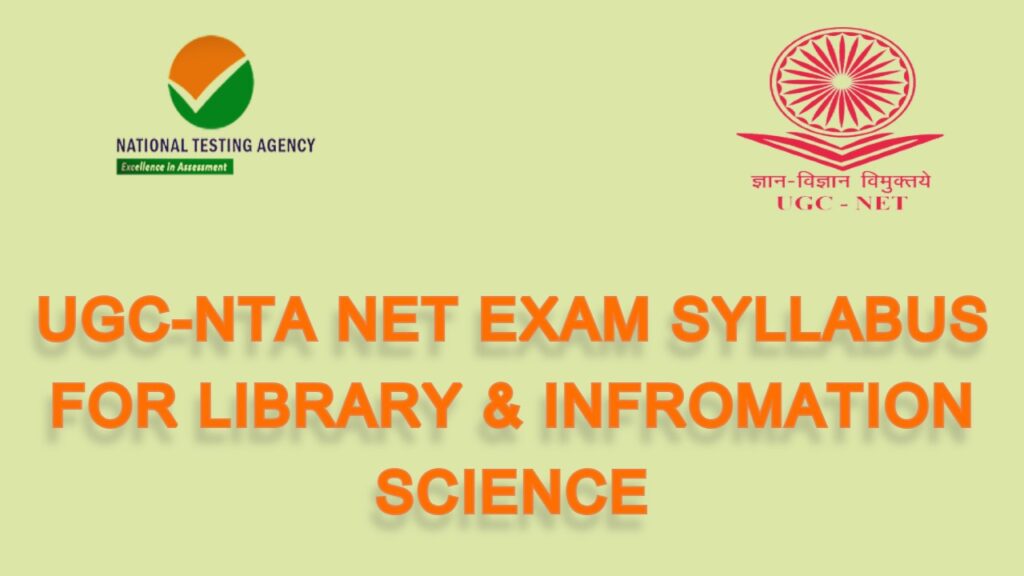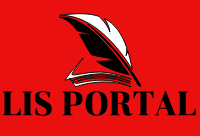UGC NET Library Science Syllabus
UGC NET Library Science Marks Distribution
The candidates have to answer 150 questions in 3 hours. Each question is worth 2 marks and there is no negative marking. There are two papers- Paper I (50 Questions) and Paper II (100 Questions). The questions are objective type multiple choice in nature…. Read more at: https://www.adda247.com/teaching-jobs-exam/ugc-net-library-science-syllabus-download-pdf/
Units Topics
Unit – I
Data, Information, Knowledge and Wisdom.
Information Life Cycle – Generation, Collection, Storage and Dissemination.
Role of Information in Planning, Management, Socio-economic, Cultural, Educational and Technological Development.
Information Science – Relationship with other subjects, Information Society and Knowledge Society
Unit – II
Historical Development of Libraries in India; Committees and Commissions on Libraries in India.
Types of Libraries – Academic, Public, Special and National.
Library Legislation and Library Acts in the Indian States; The Press and Registration of Books Act; The Delivery of Books and Newspapers (Public Libraries) Act.
Laws of Library Science.

Unit – III
Information Sources – Nature, Characteristics, Types and Formats.
Sources of Information – Primary, Secondary and Tertiary; Documentary and Non-Documentary.
Primary Information Sources (Print and Electronic) – Journals, Conference Proceedings, Patents, Standards, Theses & Dissertations, and Trade Literature.
Secondary Information Sources (Print and Electronic) – Dictionaries, Encyclopedias, Bibliographies, Indexing & Abstracting, Statistical sources, Handbooks and Manuals.
Unit – IV
Community Information Services.
Reference Service – Concept and Types; Referral Services
Alerting Services – CAS, SDI, Inter Library Loan and Document Delivery.
Mobile based Library Services and Tools
Unit – V
Universe of Knowledge – Nature and Attributes; Modes of Formation of Subjects.
Knowledge Organisation – Classification – Theories, Cannons, and Principles; Simple Knowledge Organisation System (SKOS), Taxonomies, Folksonomy, Trends in Classification.
Mapping of Subjects in Library Classification Schemes – DDC, UDC and CC
Unit – VI
Management – Principles, Functions and Schools of Thought.
Library and Information Centers Management – Book Selection Tools and Principles; Library Acquisition, Technical Processing, Circulation, Serial Control, Maintenance and Stock Verification; Preservation and Conservation; Hazards and Control Measures of Library Materials.
Human Resource Management – Planning, Job Analysis, Job Description, Job
Evaluation, Selection, Recruitment, Motivation, Training and Development, Performance Appraisal; Staff Manual
Unit – VII
Computer Technology – Character Representation (ASCII, ISCII, Unicode); Computer Hardware, Software; Storage Devices; Input and Output Devices.
Types of Software – System Software, Application Software.
Programming Languages – Object Oriented, Procedural, High Level, Scripting; Web Languages.
Telecommunication – Transmission Channels, Mode, and Media, ISDN, PSDN, Multiplexing, Modulation, Standards and Protocols.

Unit – VIII
Library Automation – Areas, Planning, Selection of Hardware and Software, Implementation and Evaluation; Standards for Library Automation.
Barcode, RFID, QR Code, Biometric, Smartcard: Features and Applications.
Digitization – Planning, Selection of Materials, Hardware, Software, Process, Issues.
Digital Library: Genesis, Characteristics, Types, Architecture; Standards, Formats and Protocols, DOI
Unit – IX
Research – Concept, Purpose, Functions, Scope and Ethics; Types of Research – Basic and Applied, Interdisciplinary and Multidisciplinary.
Research Methods: Historical, Descriptive, Experimental and Delphi.
Research Design – Selection of Research Problem, Review of Literature; Formulation of Research Problem; Hypothesis – Formulation, Types and Testing; Sampling Techniques.
Unit –X
Academic Library and Information System.
Public Library and Information System.
Special Library and Information System.
Health Science Library and Information
UGC NET Library Science Syllabus
The UGC NET Library Science syllabus encompasses a wide range of topics that aim to provide a comprehensive understanding of the field. It begins with an overview of Library and Information Science as a discipline, including the objectives and functions of libraries and their significance as social institutions. The syllabus also covers important aspects such as library legislation in India, emphasizing the legal framework governing libraries.
Furthermore, it explores the concepts of information, information science, and their role in shaping the information society. By studying this syllabus, candidates gain a deep understanding of the theoretical foundations and practical aspects of library science, enabling them to excel in their academic pursuits and professional endeavours.
Official Website : https://ugcnet.nta.nic.in/
UGC-NTA NET Syllabus Paper 1 in English
Eligibility Criteria for UGC-NTA Exam
UGC NET Syllabus in Hindi: Download Paper 1 in PDF
